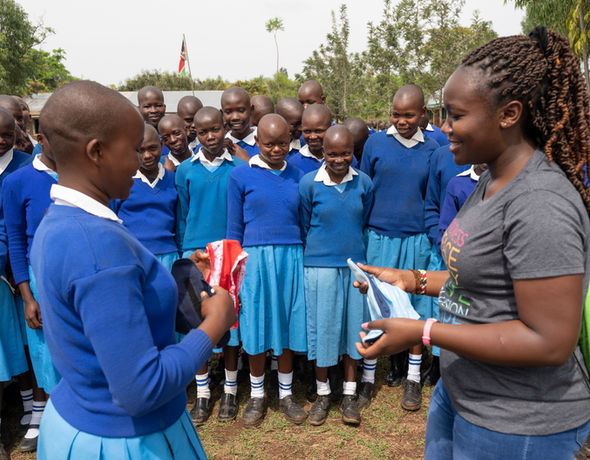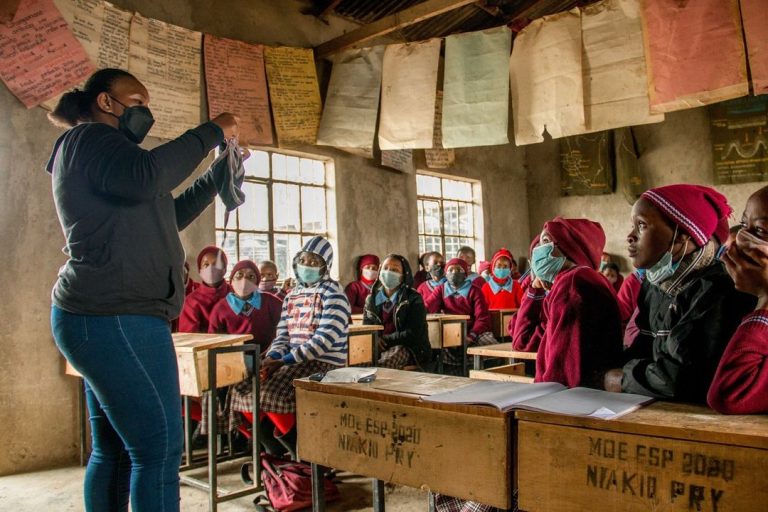Every year on May 28th, the world observes Menstrual Hygiene Day, a day dedicated to breaking the silence and raising awareness about the fundamental role that good menstrual hygiene management (MHM) plays in enabling women and girls to reach their full potential. For many girls in Kenya’s informal settlements, menstruation is not just a monthly occurrence—it’s a barrier to education, health, and dignity.
In this article, we delve into the challenges faced by girls in these communities and highlight the impactful work of Maji na Ufanisi in promoting safe water, sanitation, and hygiene (WASH) to empower them.
The Menstrual Hygiene Crisis in Informal Settlements
Lack of Access to Sanitary Products
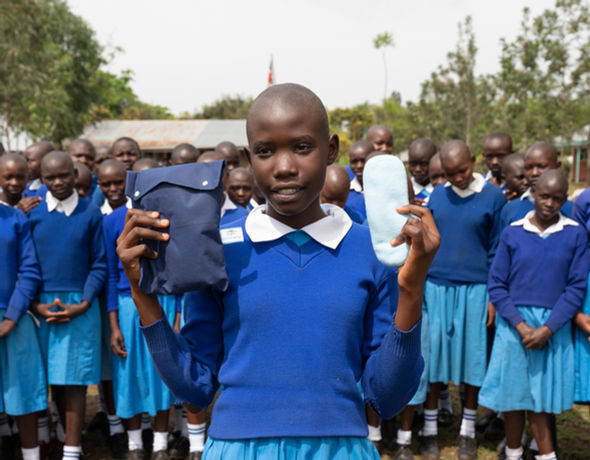
In Kenya, an estimated 65% of women and girls cannot afford sanitary pads, leading many to use unhygienic alternatives like rags, newspapers, or even leaves. This not only poses serious health risks but also affects their confidence and participation in daily activities.
Inadequate WASH Facilities
Informal settlements often lack proper sanitation facilities. Girls are forced to manage their periods in unsafe and unhygienic conditions, increasing the risk of infections and making them vulnerable to harassment
Cultural Stigmas and Taboos
Menstruation remains a taboo subject in many communities. Girls often face shame and embarrassment, leading to isolation during their periods. This stigma perpetuates misinformation and prevents open discussions about menstrual health
Impact on Education and Well-being
The challenges associated with menstruation have a direct impact on girls’ education. It’s estimated that one in ten girls in sub-Saharan Africa misses school during their menstrual cycle. This absenteeism accumulates over time, leading to poor academic performance and higher dropout rates.
Moreover, the psychological toll—feelings of shame, embarrassment, and low self-esteem—can have long-term effects on girls’ mental health and social development.
Maji na Ufanisi’s Role in Promoting Menstrual Hygiene
Maji na Ufanisi (MnU) is at the forefront of addressing these challenges through comprehensive WASH programs tailored for informal settlements.
Provision of Sanitary Products
MnU collaborates with local organizations to distribute sanitary pads and menstrual hygiene kits to girls in need. These kits often include reusable pads, underwear, and soap, providing a sustainable solution for menstrual management
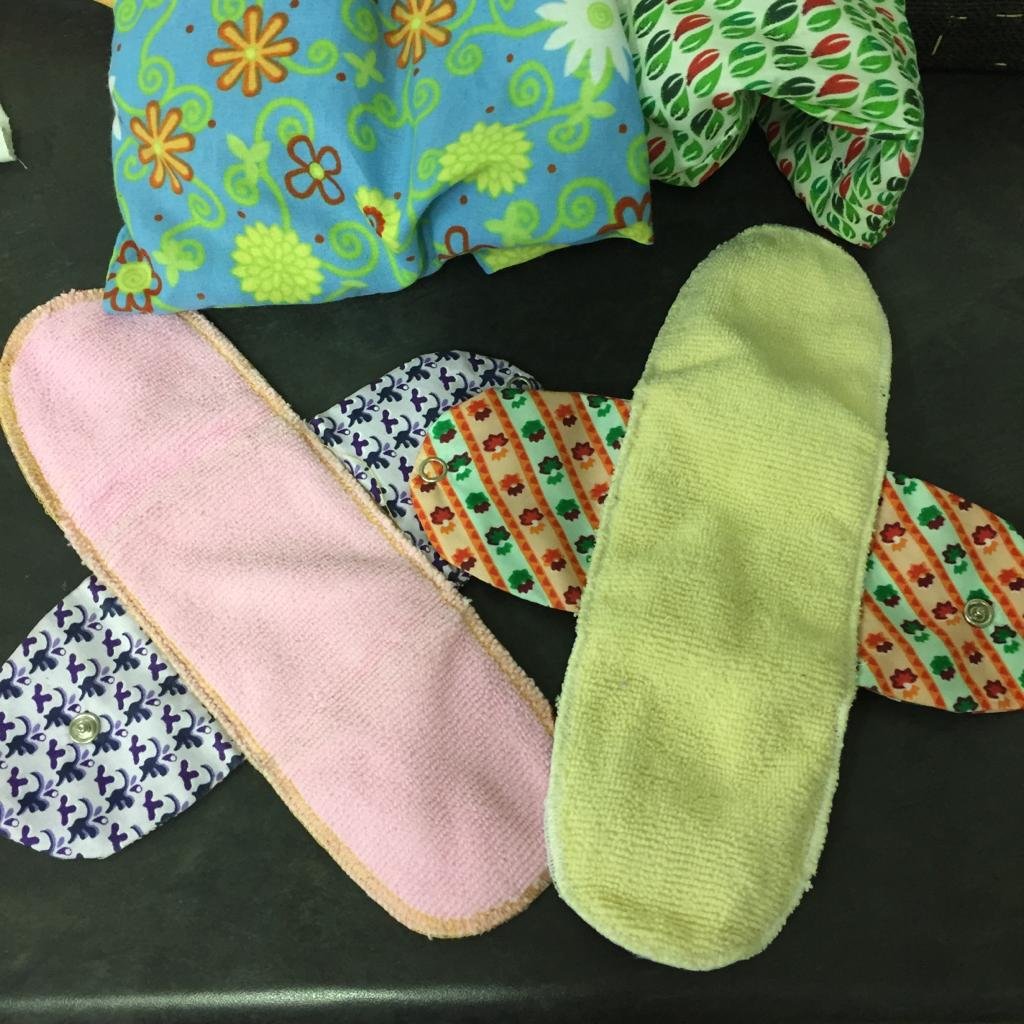
Improvement of Sanitation Facilities
Understanding the importance of privacy and hygiene, MnU works to construct and rehabilitate gender-sensitive sanitation facilities in schools and communities. These facilities are equipped with water and disposal systems, ensuring that girls can manage their periods with dignity.
Education and Awareness Campaigns
MnU conducts workshops and seminars to educate both girls and boys about menstruation, aiming to dispel myths and reduce stigma. By involving the entire community, these programs foster a supportive environment for girls.
Success Stories: Transforming Lives
Empowering Through Education
In Nairobi’s Mukuru Kwa Reuben settlement, MnU’s initiatives have led to a significant decrease in school absenteeism among girls. By providing menstrual hygiene education and facilities, girls feel more confident attending school during their periods.
Community Engagement
MnU’s community-led approach ensures sustainability. By training local women as health ambassadors, the organization empowers communities to take ownership of menstrual hygiene initiatives, leading to lasting change.
The Broader Impact: Health, Dignity, and Equality
Addressing menstrual hygiene is not just about health—it’s about human rights. When girls have the resources and support they need, they can participate fully in society, pursue education, and break the cycle of poverty.
Moreover, promoting menstrual hygiene contributes to achieving several Sustainable Development Goals, including gender equality, quality education, and clean water and sanitation.
How You Can Help
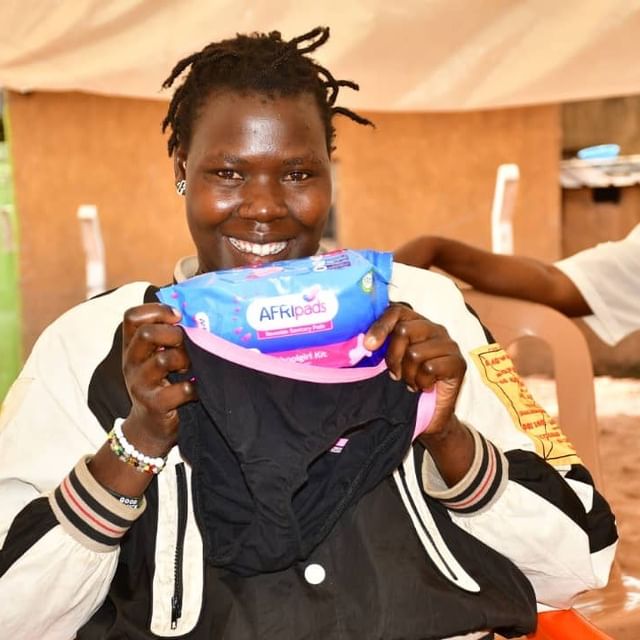
Supporting organizations like Maji na Ufanisi can make a tangible difference. Donations, volunteering, and advocacy can help expand their reach and impact. By raising awareness and challenging stigmas, we can create a world where no girl is held back by her period.
Menstrual Hygiene Day serves as a reminder of the work that remains to ensure that all girls can manage their periods safely and with dignity. Through the dedicated efforts of organizations like Maji na Ufanisi, progress is being made. But continued support and awareness are crucial.
Let’s commit to breaking the silence, challenging the stigma, and ensuring that every girl has the opportunity to thrive.
Frequently Asked Questions (FAQs)
1. What is Menstrual Hygiene Day?
Menstrual Hygiene Day, observed on May 28th, aims to break taboos and raise awareness about the importance of good menstrual hygiene management.
2. Why is menstrual hygiene important?
Proper menstrual hygiene is crucial for health, education, and dignity. It enables girls to attend school and participate fully in daily activities.
3. How does Maji na Ufanisi support menstrual hygiene?
MnU provides sanitary products, improves sanitation facilities, and conducts educational campaigns in informal settlements.
4. What challenges do girls in informal settlements face during menstruation?
They often lack access to sanitary products, proper facilities, and face cultural stigmas, leading to health risks and absenteeism.
5. How can I support menstrual hygiene initiatives?
You can donate to organizations like MnU, volunteer, and advocate for policy changes to support menstrual health.majinaufanisi.org
6. Are reusable sanitary pads effective?
Yes, when properly cleaned and maintained, reusable pads are a sustainable and cost-effective option.
7. What role do schools play in menstrual hygiene?
Schools can provide education, facilities, and a supportive environment, reducing absenteeism and stigma.
8. How does menstrual hygiene affect the economy?
Improved menstrual hygiene leads to better education outcomes, which can contribute to economic growth and reduced poverty.
9. Is menstrual hygiene only a women’s issue?
No, it’s a societal issue. Engaging men and boys in education and discussions helps break stigmas and support girls.
10. What are the health risks of poor menstrual hygiene?
Using unhygienic materials can lead to infections, reproductive health issues, and other complications.

